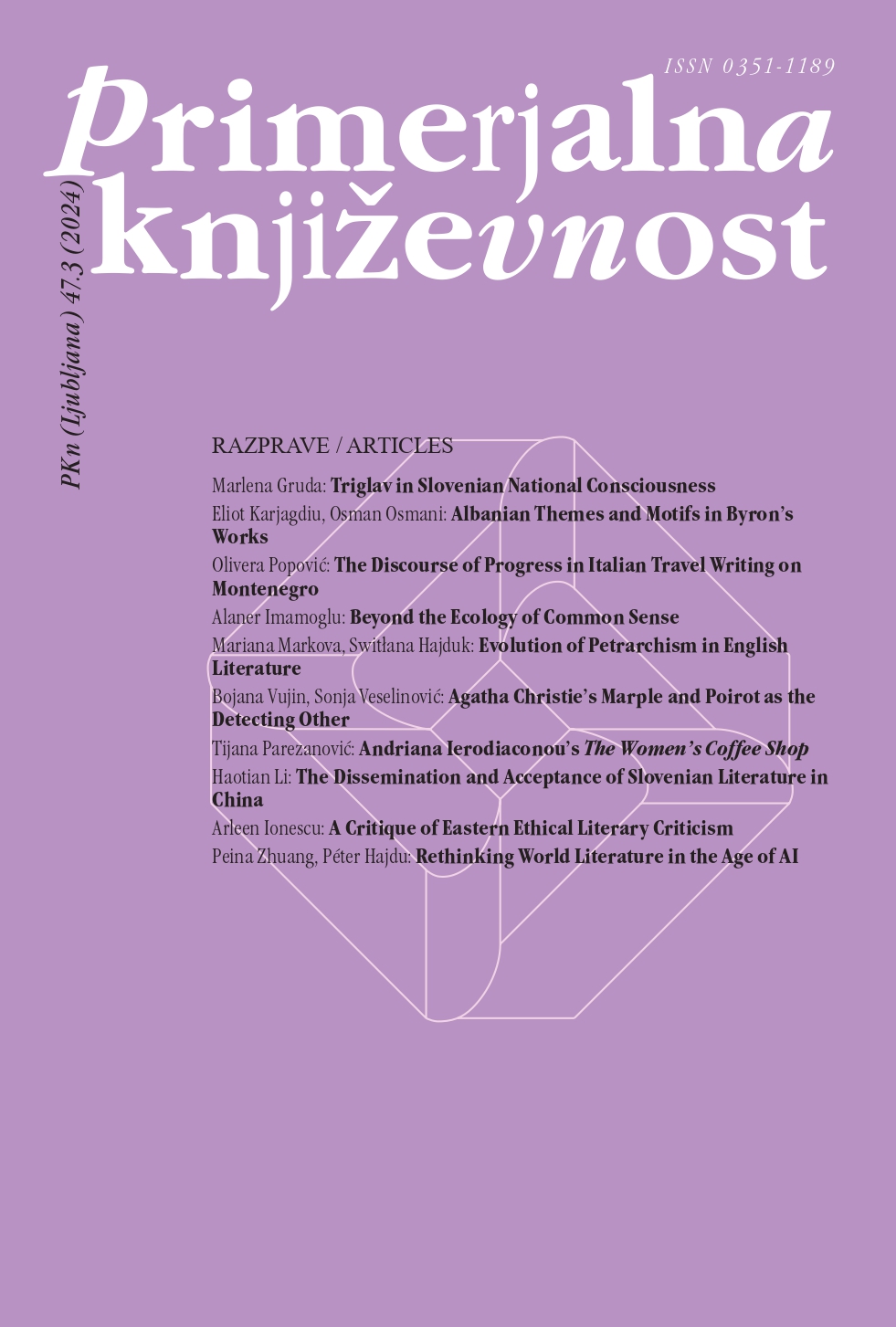Sleuthing from the Margins: Agatha Christie’s Marple and Poirot as the Detecting Other
DOI:
https://doi.org/10.3986/pkn.v47.i3.06Keywords:
English literature, detective novel, Christie, Agatha, Miss Marple, Hercule Poirot, marginalization, the OtherAbstract
Despite their central position in the canon of detective fiction, Agatha Christie’s most famous characters, Miss Marple and Hercule Poirot, occupy an ex-centric position in their respective fictional worlds. Both sleuths can be interpreted as marginalized Others and as such challenge the normative assumptions of the society in which they live. Miss Marple’s marginalization is primarily reflected in her gender, her amateur detective work, and her marital status, while Poirot’s Otherness is implied by his foreignness, his effeminacy and his neurodivergence. Both characters can also be interpreted as asexual and analyzed as straight-passing queers. This article explores how Christie uses her detectives’ status as Other to gently challenge the era’s dominant ideas about authority, sexuality, gender and morality. The analysis focuses primarily on the works The Murder at the Vicarage, The Mysterious Affair at Styles, “The Double Clue” and Hallowe’en Party and their film and television adaptations to examine both the textual and subtextual instances of marginalization, and the various attempts to keep the Other within the confines of normative identity.
References
Agatha Christie’s Marple. ITV, 2004–2013.
Agatha Christie’s Miss Marple. BBC, 1984–1992.
Agatha Christie’s Poirot. ITV, 1989–2013.
Aldridge, Mark. Agatha Christie on Screen. Palgrave Macmillan, 2016.
Auden, W. H. “The Guilty Vicarage.” The Dyer’s Hand and Other Essays, by Auden, Vintage Books, 1968, pp. 146–158.
Bernthal, J. C. Queering Agatha Christie: Revisiting the Golden Age of Detective Fiction. Palgrave Macmillan, 2016.
Branagh, Kenneth, director. Death on the Nile. 20th Century Studios, 2022.
Branagh, Kenneth, director. A Haunting in Venice. 20th Century Studios, 2023.
Bunson, Matthew. The Complete Christie: An Agatha Christie Encyclopedia. Pocket Books, 2000.
Christie, Agatha. A Caribbean Mystery. Dodd, Mead & Co., 1965.
Christie, Agatha. Hallowe’en Party. Ulverscroft, 1987.
Christie, Agatha. The Murder at the Vicarage. Dell Publishing, 1930.
Christie, Agatha. A Murder Is Announced. Pocket Books, 1951.
Christie, Agatha. The Mysterious Affair at Styles. Harper, 2007.
Christie, Agatha. Poirot’s Early Cases. Dodd, Mead & Co., 1974.
Christie, Agatha. Three Act Tragedy. Fontana, 1970.
Gilbert, Sandra, and Susan Gubar. The Madwoman in the Attic: The Woman Writer and the Nineteenth-Century Literary Imagination. Yale University Press, 1979.
Halberstam, Judith. Skin Shows: Gothic Horror and the Technology of Monsters. Duke University Press, 1995.
Hart, Anne. The Life and Times of Miss Jane Marple. Macmillan, 1986.
Knight, Stephen. Crime Fiction, 1800–2000: Detection, Death, Diversity. Palgrave Macmillan, 2004.
Light, Alison. Forever England: Femininity, Literature and Conservatism between the Wars. Routledge, 2001.
Makinen, Merja. Agatha Christie: Investigating Femininity. Palgrave Macmillan, 2006.
Plain, Gill. Twentieth-Century Crime Fiction: Gender, Sexuality and the Body. Edinburgh University Press, 2001.
Rowland, Susan. From Agatha Christie to Ruth Rendell: British Women Writers in Detective and Crime Fiction. Palgrave Macmillan, 2001.
Schuckmann, Patrick. “Masculinity, the Male Spectator and the Homoerotic Gaze.” Amerikastudien / American Studies, vol. 43, no. 4, 1998, pp. 671–680.
Serano, Julia. Excluded: Making Feminism and Queer Movements More Inclusive. Seal Press, 2013.
Shaw, Marion, and Sabine Vanacker. Reflecting on Miss Marple. Routledge, 1991.
Wells, Juliette. “‘Dear Aunt Jane’: Agatha Christie’s Miss Marple and Jane Austen.” After Austen: Reinventions, Rewritings, Revisitings, edited by Lisa Hopkins, Palgrave Macmillan, 2018, pp. 199–219.


